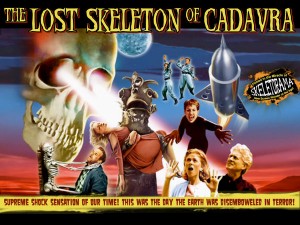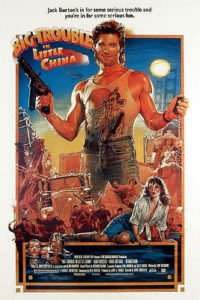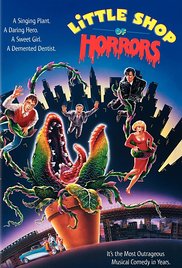Last night I was in the mood for something playful, genre, and most of all not infused with important themes. Scanning my library of DVD and Blu-ray I quickly settled on The Lost Skeleton of Cadavra.
Released in 2001 Lost Skeletonis a love letter and satire of the terrible B-movies dealing with aliens, monsters, and scientist from the late 50s through the mid 60s. Shot of video with the color removed and without complex camera tracking movements the film recreates the feel of those productions striving to capture material that lay beyond the filmmaker’s budget and abilities. The dialogue is comically stiff, the acting more wooden than a lumberyard, and the characters exist only in a continuum of stereotypes. All of this combines for a hilarious satire made with love from people who like myself wasted far too many late night hours devouring any sort of SF or horror film.
Dr. Paul Armstrong, a scientist, and his clichéd wife Betty as come to a remote cabin searching for a fallen meteorite made of the rarest of radioactive elements, Atmospherium. Also in the dry parched mountains is Dr. Paul Fleming, an evil scientist who has come searching for the Lost Skeleton in hope of using its ill-defined abilities to become the most powerful man in the world, however to awaken the skeleton from its slumber he requires Atmospherium.  Completing the triad of search characters are the space aliens Kro-Bar and his wife Lattice. Their ship was forced to land in these same mountains, their pet mutant has escaped, presenting a lethal danger to everyone on Earth, and the power source of the ship has been depleted. Of course their ship is powered by — you guessed it — Atmospherium. Rounding out the cast as secondary characters as Forest Range Brad, the Lost Skeletonhimself, the Mutant, and Animala played with seductive style wearing a body-suit, gloves, and slippers as an ‘animal’ costume. Hilarity ensures in a story that sets back male/female relations several decades. I think it is worth noting that this film fully passes the Internet’s famed Bechdel Test while never leaving the sexist tropes of the late 50s and early 60s.
Completing the triad of search characters are the space aliens Kro-Bar and his wife Lattice. Their ship was forced to land in these same mountains, their pet mutant has escaped, presenting a lethal danger to everyone on Earth, and the power source of the ship has been depleted. Of course their ship is powered by — you guessed it — Atmospherium. Rounding out the cast as secondary characters as Forest Range Brad, the Lost Skeletonhimself, the Mutant, and Animala played with seductive style wearing a body-suit, gloves, and slippers as an ‘animal’ costume. Hilarity ensures in a story that sets back male/female relations several decades. I think it is worth noting that this film fully passes the Internet’s famed Bechdel Test while never leaving the sexist tropes of the late 50s and early 60s.
I saw this movie in an art-house theater on its initial release and it was quite refreshing to find something this light, this fun, playing in the same venue where deep and serious foreign films often screened. The cast reunited for a sequel, naturally titled The Lost Skeleton Returns Again, and while the follow-up film plays well it is not quite as fresh as that first pure experience. For anyone who loved those bad, cheesy, Black and White genre movies this is something you should give a scan.





